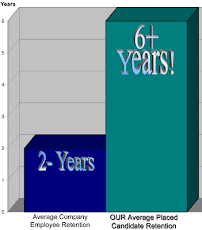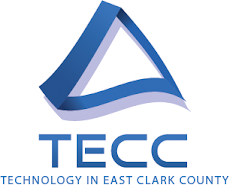In study after study, more and more engineers over forty are reporting age bias in their job search and engineers are increasingly wondering what they have to do to get a job in the second half of their careers.
According to a recent survey by ExecuNet, 84% of those polled said that age discrimination is a serious problem in today’s marketplace. Additional interesting results from the survey included:
- 65% of engineers surveyed said they had encountered age discrimination in a job search — up from 58% who expressed that view in 2001
- 94% felt their age had resulted in their being eliminated for a particular position
- 40% feared they would be forced into early retirement
- 72% feared being victimized by age discrimination
- 36% feared they were getting too old to find a new job
As a technical recruiter for the past twelve years, I see age bias on a regular basis, and some employers are not shy about openly expressing their bias to me or even candidates.
I’ve had more than a few candidates tell be that have been passed over due to their age. And these are only people that know age bias was the issue. Many employers use fake excuses or vagueness to cover up the real reason why they don’t want to interview you. Others just don’t even respond back to your resume submission. Why do some employers pass up qualified, skilled, experienced engineers? Some employers believe that older people are more costly to an employer since, health care costs are higher. They also think they may not be able to develop or use cutting edge technology. The “old dog, new tricks” adage has a lot of validity in many older employees. Thus, your mission is to overcome these concerns. But you can’t overcome them, if you can’t get in the door. It all begins with the resume.
So here are some resume tips that will help you get in the door and in front of the decision maker.
Seasoned engineers need to carefully craft their resume so that the resume reviewer does not encounter red flags that trip age bias. You should consider these tips when preparing your resume:
1. Focus your resume. Concentrate on highlighting your two most recent or relevant jobs. Do not attempt to give equal attention to each of your past jobs especially when your experience has been diverse. Focus your resume on the position you are applying to. Resume reviewers can’t read between the lines. General, wordy, or ambivalent resumes will be overlooked. Focus and concentrate.
2. Tailor your resume to the specifics of the position you are seeking. If you are applying for a Director of Engineering position and your resume is one long paragraph about your business development experiences, you aren’t going to be selected for an interview.
3. Do not write a “functional” resume for a recruiter/headhunter. The functional resume rearranges employment history into sections that highlight areas of skill and accomplishment VS the chronological resume which is organized by job titles with the most recent position listed first. Recruiters are trained to red flag a functional resume – alerting us that the candidate is attempting to hide something. Functional resumes generally indicate that the candidate is hiding an employment gap, lack of a degree or their age. Send a chronological resume. If you have an employment gap, explain it. Show how it is relevant. Employers what to see that you were doing something if you were unemployed. Were you consulting? Were you looking for work? Or were you sitting on the couch watching TV?
4. Structuring your resume. Structure your resume with a one sentence statement about the size of the company you worked at and what they do. Although you may have worked for XYZ Company, many people have no idea what that company does, or what its size. This is very relevant to a potential employers’ decision making.
Example:
Sr. Product Developer (title should be in bold) 1999 – present
XYZ Company
A $10 Million RF consumer product company.
5. Do not include work experience before 1980. It is generally not relevant anyway. If you were a tradesman back in 1973, it doesn’t take a rocket scientist to figure out your approximate age and eliminated you from the selection process.
6. List technical skills and your degrees. Don’t add college or trade school graduation dates to your resume. If you list that you earned your EE degree in 1973, it’s pretty easy to figure out how old you are.
7. Always, always be truthful on your resume. If you didn’t earn a degree, don’t say that you did. The trick is not volunteering information that will identify your age and cause your resume to be eliminated before you get the chance to interview and prove what an asset you can be to a potential employer.
8. Don’t write an objective or summary introductory paragraph. It’s a waste of time and space and no one reads them, nor does anyone care that you want to expand your horizons, or that you think you are skilled, talented, a go-getter, sexy, or anything else. This information will be confirmed by your reference checks.
9. Be specific. Use bullet points, and list achievements that show that you have increased revenues or saved past employers’ money. Employers only care about how you are going to be an asset to them – either make them money or save them money. Be specific.
10. Avoid dated words, clichés, and weak words such as; people person, self-starter, and go-getter. Instead, use dynamic action/achievement words.
Instead of “maintained” production use: Improved production by 35% in 2007
Instead of “worked on” a project use: Designed and developed xyz product
(Obviously your statements have to be true)
Other “action” verbs to use; accelerated, achieved, created, lead a team, developed, designed, demonstrated, increased, implemented, organized, re-engineered, and saved.
11. Show that you recover from downturns with few scars. Give examples of how you solved problems, recovered expenses, and learned to compensate for weaknesses in your organization. Emphasize how quickly such adjustments occurred. This experience can be invaluable in difficult times.
12. Use buzzwords, keywords, and industry terminology. These words can show your familiarity with important issues in the industry to which you are applying. This tip certainly applies to all job seekers, but for seasoned engineers, you will appear especially unknowing if you can't talk the talk.
13. List continued education. Future employers prefer if you’ve continued to educate and train yourself throughout your career. Many companies take preference to people that continue their education and training. This tells a potential employer “hey, I’ve got experience PLUS I’ve continued to educate myself”. Will an advanced degree help you get a new job? Maybe. It depends on the employer. Advanced degrees never hurt, and if you went to night school while working full time, this tells the employer that you are dedicated, focused, and have a strong work ethic.
14. Say NO to one page resumes. If anyone tells you that you need a one page resume…run! Seasoned engineers should have 2-3 page resumes, and this is perfectly acceptable. Most “professional” resume writers are former English teachers or people that which are not out working in the trenches. Before paying a resume writer, ask for his/her qualifications or ask for a referral. What worked ten years ago doesn’t work today. A resume is a marketing piece. Created and written to get you in the door for an interview. It is not a biography. Write it showing experience relevant to the position you are applying for. It’s ok to have more than one version of your resume, each specific for a different position.
Also, keep an active lifestyle. Companies don’t like to hire health risks. Many people in their 50’s and 60’s work hard and play hard. Many can out race, out run, and out work people half their age. Join the health club, get out and hike, boat, and bike. I know a 60 year old VP of Engineering that mountain bikes every weekend. He loves it. And it keeps him active, healthy, and fresh.
Networking. Network on an ongoing basis with peers, former colleagues, former bosses, and members of online or offline industry organizations. When the time comes, someone who knows you and your work will be in a good position to recommend you for a job. Their recommendation will do a lot to neutralize the power of age concerns. On-line networking is critical as well. Professional networks such as Linked-In, and trade networks such as IEEE, softwarenetwork.ning.com. and pdxmindshare.com are all good places to meet potential employers and allow them to find you.
Once you receive interest from a potential employer, what’s next?
How do you handle the interview to make your age insignificant?
Preparation is the key to a successful interview An ill prepared candidate will interview soft. Did the candidate do their due diligence researching the company before interviewing? Did they spend 5 minutes, or five hours on the company web site? Did they have a list of questions prepared and organized into groups for rapid fire answers? In today's interviewing process, you MUST be prepared - this includes preparing for phone and face-to-face interviews.
1. Interview Preparation. Research the company. Be able to intelligently talk about the company's current challenges and initiatives. Use your 'extensive experience' and 'large knowledge base' to think about ways in which you could benefit the company going forward. Use Google, ZoomInfo and local trade associations to discover the company’s culture, people, as well as their financials, products, and history.
2. Study interviewing questions and answers. Our website, along with others on the internet, provides typical interviewing questions and answers that you should review. Rehearse your answers. Practice, practice, practice. This is your career and future job – invest some time preparing for it. Most people don’t interview every day. They are not professionals at it. They need guidance and practice. Did you know most people invest more time into planning their next vacation than they do in preparing for their next job?
3. What can you bring to this organization? Just wanting a job isn’t enough. What asset can you bring to the table that will make them want to hire you? Be specific. If you can’t, research their company and find out. Learn everything you can about the company before you walk in the door.
4. Join Toastmasters. “What? Are you nuts?” You heard me correctly. Toastmasters or other speaking organizations give you the opportunity to learn to speak “impromptu” – on the spot. They also teach you breathing control, gestures, body movements, posture, and you can have a lot of fun doing it too.
5. Practice watching yourself talk in front of a mirror. Pay attention to your walk, talk, posture, and stance. These things reflect how you feel about yourself, how you carry yourself, your self image, and eventually – how you will reflect on others as a representative of the company.
6. Physical Appearance. I have a goatee with a large amount of grey in it. If I were going to an interview, I would color my goatee to get the grey out. I recommend this for you as well. If you have grey hair, get it colored. You may say, “If they don’t like me for who I am, I’m not interested”. This is the same attitude as the “old dog new tricks” adage and will prevent you from receiving an offer. Buy a new suit (classic or business casual) and dress the part. If the company is a young, entrepreneurial company; interviewing in a suit and tie may not be appropriate. Find out. If you can’t, call the receptionist and ask. Wear matching socks. Polish your shoes. Color coordinate. Comb your hair. Get help if you need advice. You don’t want to appear like the absent minded professor. And always, pop a breath mint when you arrive in the lobby.
7. Body language in the Interview. Present yourself as vigorous and energetic. Avoid leaning back and looking too relaxed.
8. Interview strategy related to age. Legal considerations will probably prevent an interviewer from asking your age. However, he or she may well be thinking about it. So stress the value-added benefits you offer as an experienced professional. Give examples of how you used your experience to avoid costly errors and false starts. Give examples of cases in which your judgment and experience made money, saved money, or solved problems.
9. Don’t appear to be the “old dog” which can’t be taught any new tricks. Provide examples of how you have worked in recent team environments and taught AND learned from your peers – younger or older than you.
10. Don’t offer a solution to their specific problems. You are not intimately knowledgeable about all the specifics of a company’s problem. Only offer solutions to similar situations you have experienced and frame your language in that context.
11. Know your relevant accomplishments. Be able to talk about your accomplishments that are relevant to the position.
12. Breathe. You will naturally be nervous, so take a breath. Be specific and to the point in your answers. Do not ramble on or talk fast trying to get everything in. If you give an example, make it short, and to the point. Be specific.
13. Listen when being spoken too. Don’t interrupt. This is another pet peeve of hiring executives and can eliminate you from consideration.
14. Thank them for their time and consideration. Test close – ask a leading question such as “where do we go from here?” The interviewer should give you an idea of how you interviewed and an overview of the remainder of the hiring process.
15. Send a thank you note. Hand written notes are best, time permitting. You would be amazed at how few interviewers ever receive a thank you for their time. So when you send a thank you, you stand out from the other candidates. This also gives you a chance to reiterate how you can be an asset to the company, the interviewer and their team. Take advantage of this opportunity to promote yourself one more time.
Bio:
















1 comment:
Excellent tips, seems to be an expert, thanks for sharing this with me!@bose
Resume Formats
Post a Comment